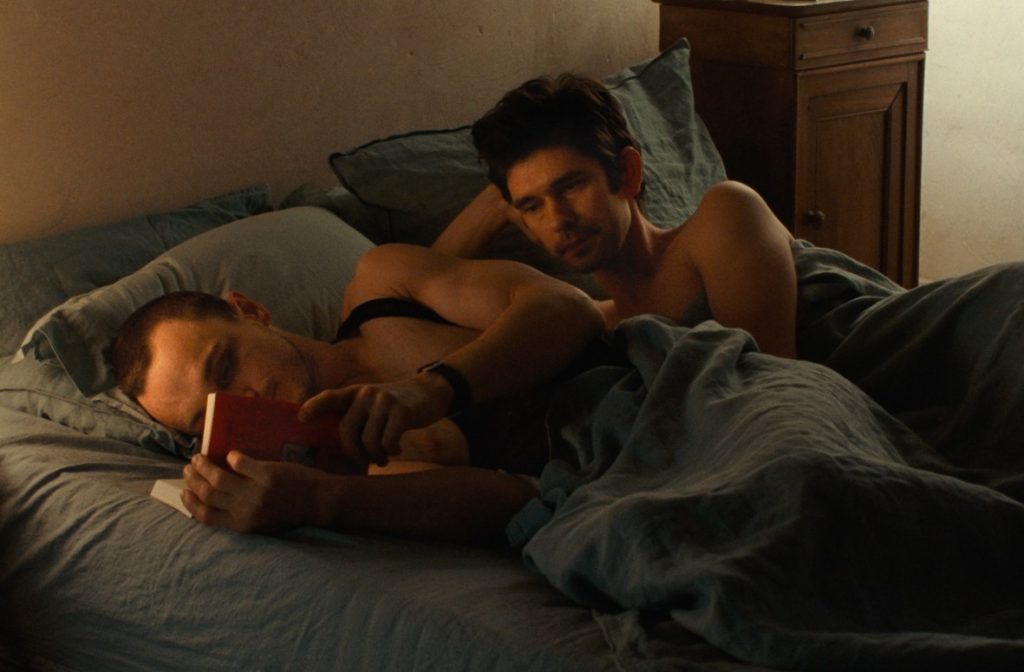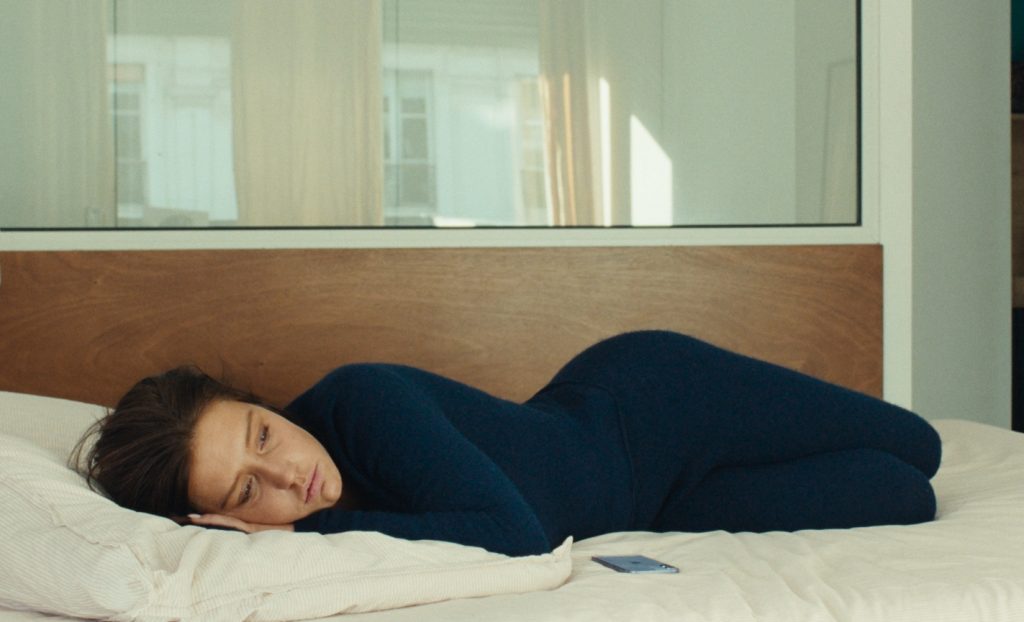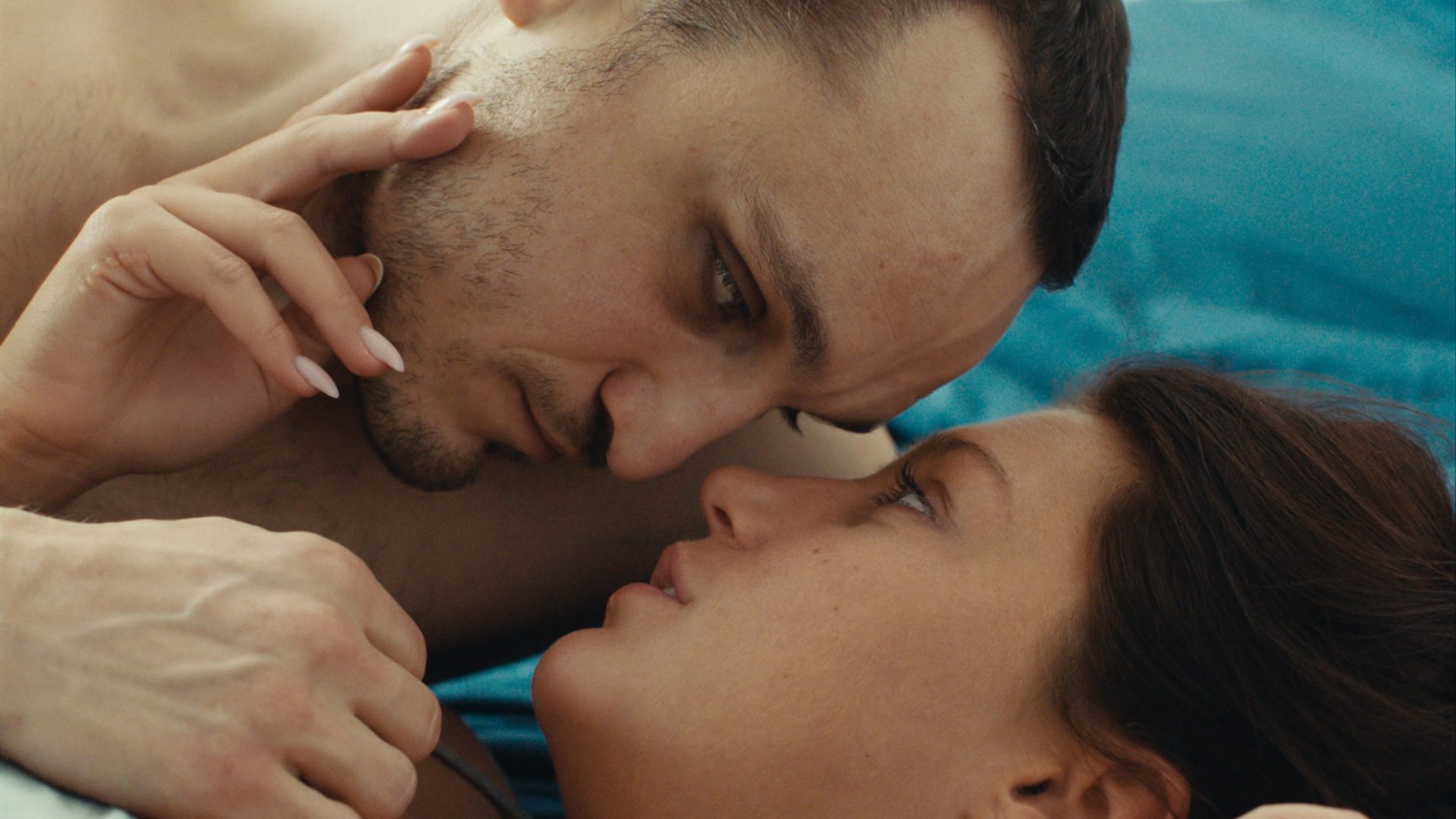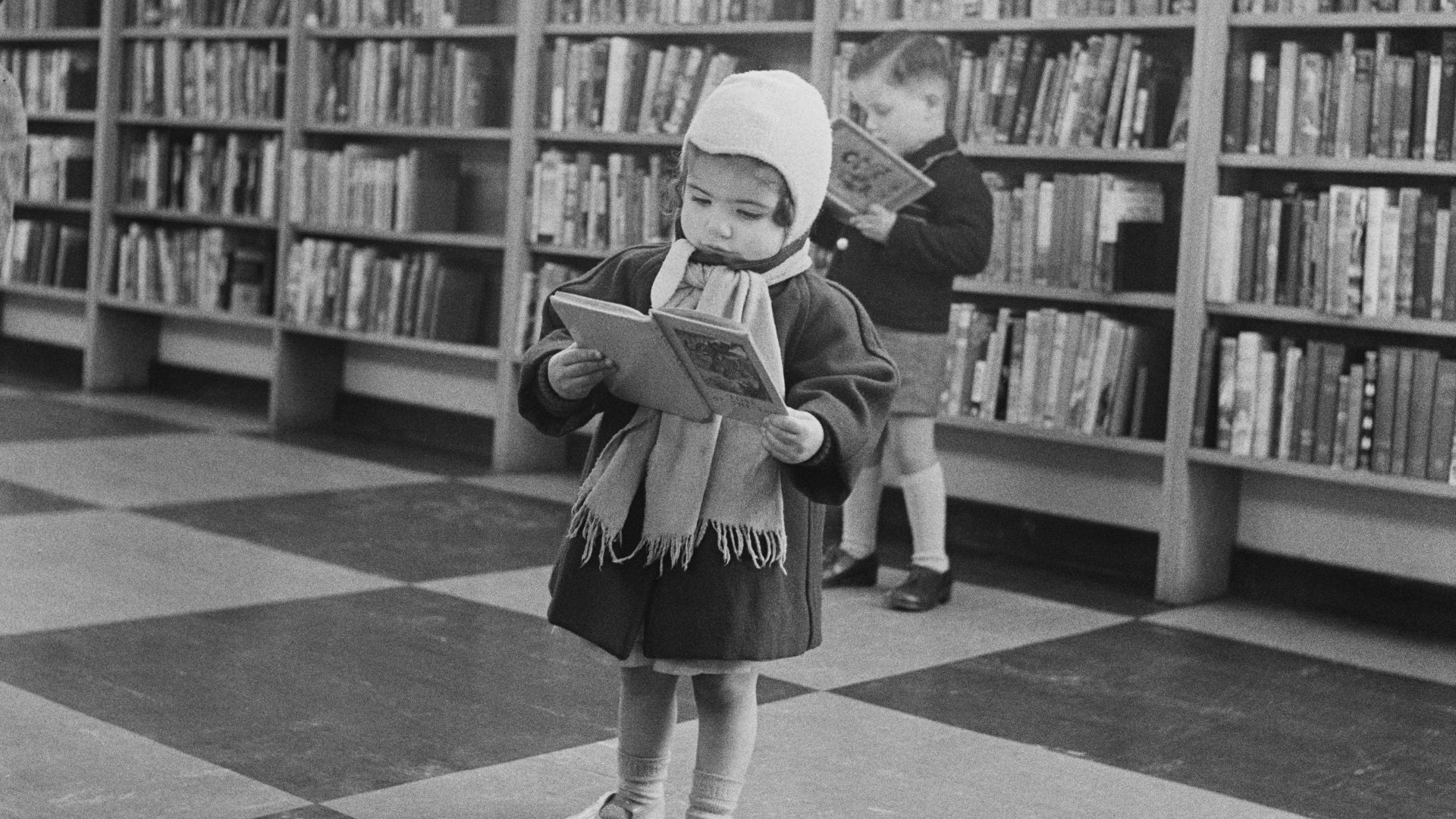Sex is back. After years dominated by Marvel superheroes constricted by tights and great responsibilities, the lycra is being thrown off with abandon on our big screens.
Even Paddington’s at it. Not in the upcoming Paddington 3, don’t worry, but if you want Paddington bare, you just have to see Passages, the new film from Ira Sachs, which stars Ben Whishaw (the voice of the furry marmalade-scoffer) in a Parisian love triangle that would have Aunt Lucy turning a shade of darkest Peru.
Casting aside any British timidity around the topic, Whishaw is terrific in Passages, confronting viewers with full gay sex in intimate scenes with charismatic German star Franz Rogowski. As Martin, an Englishman living in Paris and working as an illustrator, Whishaw is in a patient relationship with Rogowski’s Tomas, a selfish film director who, celebrating the wrap of his latest movie, embarks on an affair with a woman, a primary school teacher called Agathe, played by Blue Is the Warmest Colour actress Adèle Exarchopoulos.
It’s an attractive, skilled pan-European cast, with much bed hopping and hand wringing over the complicated ripples of infidelity and open-minded relationships, where the two attitudes clash and where real love complicates all and, inevitably, people end up being thrown out of their apartment and moving in with whoever they’re screwing.
“That’s all there is in relationships,” says director Sachs, simply. “Love and home.”
It’s a recurring theme in the New York-based filmmaker’s work. Think of John Lithgow and Alfred Molina in 2014’s Love Is Strange, a gay couple whose late-life marriage results in one of them losing a job and therefore their Manhattan apartment; in 2016’s Little Men, when a couple (Greg Kinnear and Jennifer Ehle) inherit a Brooklyn brownstone with a long-term sitting tenant in the basement and want to raise the rent; and in 2019’s Frankie, where Isabelle Huppert calls together her extended family to a beautiful beach house.
In Passages, Tomas’s dalliance with heterosexuality results in destruction. He breaks up the home he had with Whishaw’s Martin, a lovely Paris apartment, as well as a country getaway the successful couple have bought. He moves in with Agathe, whose life as a teacher is turned upside down by this preening artist whom she even believes her parents will take to during an excruciating dinner. They don’t.
While Sachs defends his belief in love and home being all that counts in relationship movies, I point out that sex is pretty prominent in his pictures, too. His 2012 film Keep the Lights On is one of the most explicit gay love stories – and drug addiction stories – in 21st-century independent American cinema.
“But sex is narrative,” he says, almost in protest. “Good sex scenes are really hard, mainly because, done badly, they’re really boring. You know, we have access to pornography everywhere now, so what’s challenging is to make sex scenes filled with content and story. So I position the camera in the room in a way that allows the actors to tell a story with their physicality, their expressions, their bodies, their bones, their moans, their hands – it’s all part of the story and I admire the improvisational nature of it. Capturing that is very exciting.”

Sachs’s sex scenes are sensual, yes, but not erotic. There’s a matter-of-factness about them, even if Whishaw, Rogowski and Exarchopoulos are all extremely lithe and beautiful. “Well, if it’s true there hasn’t been much sex in cinema recently,” says Sachs, “that seems to me because there hasn’t been much made for adults, about adults. What’s radical, I think, is making a film about grown-up, fully realised human beings, and their emotions and feelings – that’s the rarity.”
Maybe I’m getting old but, I say, these are still young people. Yes, they’re not kids, but they’re in their late 20s or early 30s, becoming successful in their jobs, but still with much to learn about life.
“Oh, well, it’s the movies,” laughs Sachs, “and you want to see beautiful people up there, naked or clothed, don’t you? They’re like us, just a bit better looking, right? That’s partly what cinema is about.”
I can’t argue there. Passages is sexy stuff, but your heart also goes out to each character and each of their wrong moves. Their behaviour is impulsive and destructive and you can see no good coming from it, even if there is sometimes the gratification of sex. Perhaps, at that age, that’s all there is?
“I don’t know,” says Sachs. “I like to think it’s possible to behave like that at any stage of your life. It may not be advisable, but it’s possible and I think it’s important to be alive to possibilities.”
Sachs is a prominent gay filmmaker and although his film is even-handed here, there’s certainly a sense that Exarchopoulos’s Agathe gets burned by being mixed up in a gay relationship, being pulled into a gay world. I don’t know if this sounds as a warning – Sachs himself has a personal life in which his close friend and neighbour was the surrogate mother to his and his husband’s two children – but there is a sense that Agathe is damaged by being involved in this situation.
And yet, Sachs is noticeably reticent, as are his characters, to put any labels on them, such as bi or queer or straight. Perhaps this is the resonance of Passages as the film’s title, a suggestion that this is transitory and transitional, on the way to something else, or that these are episodes on the pages of each character’s life.
“I like to use costume to express things more concretely,” explains Sachs. “I don’t rehearse before filming so, in a sense, what you see are the actors themselves but they’re acting – the space where Adèle becomes Agathe or Franz becomes Tomas, I find that very blurred and costume aids with those delineations. Clothes differentiate the character from the actor and they tell the story.”
I think of one scene in which Rogowski’s Tomas arrives for that parental lunch wearing a shocking pink knitted cut-off top, suggesting he’s been out the night before and just got in from a club, or even been having sex somewhere else. “Yes, certain pieces that people wear are props, conveying tension or creating drama – it might look like vérité, but it’s not a realist film, it’s cinema, so the costumes are elevated somewhat, so Agathe is a school teacher but we dress her like Brigitte Bardot…”
Of course, not wearing clothes is a kind of costume, too, and there’s a great deal of that. I was intrigued to hear that Sachs, unlike most directors now, did not use an intimacy coordinator. He stumbles a bit when I ask him about that. “Well, I was in France,” he says.
Amusing though that might be as a response, I’m not sure traditional Parisian laissez-faire attitudes prevail in all parts of that industry. “Look, if intimacy coordinators are about making people feel comfortable and enable them to talk about issues and boundaries, I decided to have those conversations with my actors myself. So we very much asked what limits and boundaries were and once they were stated, they were never crossed.”
For all its seeming frankness and explicitness, Sachs says you never see genitals or even breasts in this film. He cites boundary-pushing films such as Chantal Akerman’s debut Je Tu Il Elle as an example of fearless sexuality on screen; so too the German cult film Taxi zum Klo, from 1981, about a gay man who is also a school teacher; he cites Passolini. “All of these filmmakers remind me what’s possible in movies and it’s not the sex in them that make them endure, it’s the way the sex sheds light on the characters’ humanity. That’s what I wanted to achieve in Passages, a sense of people finding themselves, exploring their limitations, both emotional and physical.”
Sachs is clearly an intellectual kind of filmmaker. But his films have a lightness of touch that keeps them from pretentiousness, a taste of the absurdity of relationships and situations – when Martin, for instance, tries to cover up his new lover from Tomas, Whishaw plays it like a bedroom farce.

“I think shooting in Paris gave me a certain freedom,” he says. “In my mind, it’s the city with a certain attitude to sex in cinema and it welcomes films that treat people as adults, thematically and visually.” Sachs is proud to have made what is, to all intents and purposes and tax breaks, a French film. Not all the dialogue is in French but the majority of the crew and cast are. It’s interesting that Passages releases just as Woody Allen, another Jewish New Yorker, premieres his first totally French film, Coup de Chance, at Venice. Is there a shift away from the creeping prudishness in America cinema?
Sachs is reeling from Passages receiving an NC-17 rating in the US, it’s a label he has called a “form of cultural censorship that is quite dangerous, particularly in a culture which is already battling, in such extreme ways, the possibility of LGBT imagery to exist”.
He tells me, however, that his relationship with Paris goes back over 30 years, recalling how he came to live there as a student in his early twenties. “I got a room in a house, with a Madame Doge and her son, and it was in a dreary part of the 16th, but they were very kind to me and well, it’s where I discovered cinema. I saw 197 movies in three and a half months and it changed my life.” (I don’t know what to say to this stat other than – “You couldn’t make it a round 200?”).
“So, Paris is in my bones. I didn’t go to film school – except for that intense period of consuming movies in Paris. I’m self-taught and that city taught me. I have lived there and cried there, I know what it feels like to be rejected in that city, and to be loved. I can’t say I was making a homage to French film intentionally, but there were certain films and filmmakers that haunted me and whose work and images I found impossible not to reference.”
Passages is in UK cinemas now, and will stream on MUBI later this year.




